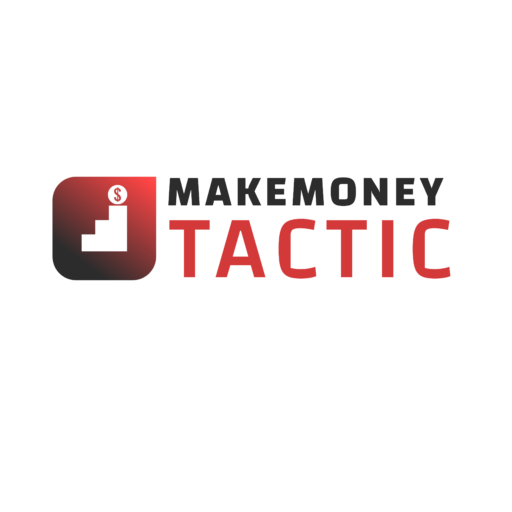Whether you are a website owner, blogger or else, you need to find keywords with good search volume to craft your content around. You may be willing to start a new blog and make money from your blog or just thinking about improving your content plan. Don’t worry, this blog post will cover the best almost Free Keyword Research Tools for SEO that help you find quality keywords for your content.
What are Keywords?
Keywords are words or phrases used by people when they search for something. It is the terms written by the users in the search box of the search engine.
Keywords have different CPC, search volume, difficulty, competition and more. However, choosing these metrics and their values depends on your SEO plan.
After all, searching for keywords is crucial for your business as it:
- Helps your blog posts rank higher on Google.
- Increases the ROI, sales and profits.
- Drive more traffic to your website
15 Free Keyword Research Tools for SEO you should use:

Let’s not waste any time, and start with the best 15 Free Keyword Research Tools for SEO you must use for getting keywords to your website:
1. WordStream’s Free Keyword Tool
It is one of the best Free Keyword Research Tools for SEO that comes with strategic advice.
- Advantage: Easy and headache-free PPC keyword research.
- Special feature: Known keywords database for 60 verticals with strategic advice.
- Price: Free for the first 25 results, and the rest of the results via email.
With this tool enter a keyword or URL and you’ll get a list of relevant keyword suggestions, including related and long-tail variations, along with search volume, competition, and CPC for both Google and Bing. You can also filter by location (along with over 23 countries), or industry (by 24 different verticals). The tool will show the top 25 keywords right away, and to get the full list to enter your email address and you’ll get it for free.
Also, we’ve used our keyword research to create a database of the most popular keywords for 60 different verticals. Go to our Popular Keywords page, click on your vertical and you’ll get the top 25 keywords for that vertical. It is great for identifying seed keywords and starting points for your campaigns.
In addition, you can scroll down on the Popular Keywords page to get tips on using high-volume keywords, and on the specific vertical pages to get tips for marketing in that space.
2. Google Keyword Planner (Free Keyword Research Tools for SEO from Google)
It is a very important tool.
- Advantage: Intermediate to advanced PPC keyword research and account insights.
- Special feature: Bidding data and advanced attribute filtering.
- Price: Free, and have an active Google Ads account.
With Google’s Keyword Planner, enter your keywords into the search box and you will see the following data for the keywords you entered as well as related keywords: average monthly searches, 30-day search trends, three months and year over year change, and competition (low, medium, high).
The refine keywords tool, which has been added to beta since 2020, helps you to filter by specific attributes related to the keywords.
Also, you can see what advertisers have historically paid for that keyword’s top-of-page bid. If you’re active in advertising, you’ll also see your ad impression share for that keyword as well as whether that keyword is in your account.
3. Soovle (Free Keyword Research Tools for SEO)
It is like time travel back to the 90s but to get new ideas.
- Advantage: Initial brainstorming for new keywords.
- Special feature: See queries for nine different platforms in one view (+90’s nostalgia).
- Price: Free
With Soovle, enter a term into the box and it will give you the most known queries for that term across 16 different search engines, including Google, Bing, YouTube, Amazon, eBay, Buy.com, Overstock.com, Walmart, and more. Or you can customize it to show you only the search engines you want, drag queries into a saved suggestions box, and click on any one query to be brought to the SERP for that platform.
Soovle doesn’t provide volume, competition, or cost data, it’s great for coming up with content ideas as well as for understanding intent in some cases. There are a few who know that YouTubers look for lawnmower sounds for sleep.
4. AnswerThePublic
Trippy video background…questions for days…it’s a mind-bender.
- Advantage: Finding question keywords, targeting People Also Ask in the SERP.
- Special feature: Keyword visualization
- Price: Free at three searches a day, pay starts at $99/mo.
With AnswerThePublic, type a phrase or term and it will show you the questions people are asking related to your entry. You will get some cool visuals without getting any volume or click data.
You can see this type of visual for:
- Questions: who, what, where, why, when, which, can
- Comparisons: vs, or, and
- More: which, are, will, can, like.
I find it hard to digest the information, even in the list view, but luckily, you can export the data to CSV.
AnswerThePublic is free for only three queries per day, while the paid version starts at $99 and offers more features like monitoring and alerts, customized viewing, data comparison over time, and folders.
5. Google Search Console ( A Must use Free Keyword Research Tools for SEO)
Google Search Console is another Free Keyword Research Tools for SEO. It helps you read your readers’ minds.
- Advantage: Optimizing existing SEO content and finding spinoff content ideas.
- Special feature: The most accurate and real-time reporting on organic.
- Price: Free for anyone with a website.
Keyword research is one of the many ways to use Google Search Console for SEO. At the left-hand pane you will find “Search results”, press on it and you’ll see the top queries that are leading your site to appear in the SERP, with impressions, clicks, click-through rate, and position for each.
You can then use a URL to filter where you can see how effective your keyword targeting is. Then, you plug the other queries into a keyword research tool to see if you should incorporate them into your post or not.
Also, you can find queries for which your page is not performing well and which might be keywords to target with a separate post.
6. Google Trends
For when you want to know if it is a real thing
- Advantage: Identifying the evergreen value of a keyword.
- Special feature: Real-time data and search history back to 2004.
- Price: Free
With Google Trends, you can point out recent and popular keywords that don’t yet show volume in keyword research tools because they haven’t been around for enough time.
And can also be used to confirm a keyword that has solid volume in a keyword research tool is worth being targeted.
If you are new or unfamiliar with Google products, this report would show you that Google Goggles is no longer worth targeting if you want a post with long-term value.
On the other hand, you can identify keywords with low volume and competition but growing in popularity. Then, select and rank for keywords to accumulate traffic, backlinks, and authority ahead of time.
The top multi-purpose Free Keyword Research Tools for SEO with low budget

The above tools are best for those who have solid SEO skills and additional tools. In this section, the tools are meant to serve multiple purposes in one tool and are great for business owners or SEO beginners who don’t have an advanced SEO strategy or a large budget.
7. The Free version of Semrush…A Free Keyword Research Tools for SEO
Sort of like lawn seats…
- Advantage: Light SEO work for beginner to intermediate experience levels.
- Special feature: Assistance with writing SEO content.
- Price: Free
Semrushs free version provides your basic keyword data like volume, difficulty, and CPC, and it offers 10 queries each day, one project where you can track 10 keywords and audit 100 pages of your site, one on-page SEO Checker Campaign, one SEO Content Template, and one use of the SEO Writing Assistant.
This is probably the most reasonable free version of a premium keyword research tool.
8. KeywordTool.io
It is a tool that can provide thousands of keyword suggestions from real user queries.
- Advantage: Finding long-tail keywords for SEO and PPC.
- Special feature: Suggestions for eight different platforms.
- Price: Free with no numerical data, pay starts at $69/month with a 30-day money-back guarantee.
Keyword Tool generates long-tail keyword suggestions for any term using Google autocomplete (which uses search behavior and data). Google autocomplete gives you about five suggestions, while this tool shows you the hundreds of suggestions available. It will prepend and append the term with words and prepositions, besides, you can find suggestions specific to Google, YouTube, Bing, Amazon, eBay, Play Store, Instagram, and Twitter.
Keyword Tool free version allows you to sort out questions and prepositions, and filter them to include and exclude specific words within results (a maximum of five exclusions). While the paid version (starting at $69/month) provides a full list of suggestions, data like search volume, cost per click, competition, and trends, as well as competitive analysis capabilities.
9. H-educate ( My recommendation for Free Keyword Research Tools for SEO)
This amazing keyword research tool gathers all main factors to choose the best keyword research tool.
H-educate is awesome because:
- It is FREE Forever for UNLIMITED keyword searches.
- This free tool gets its data from Google and other popular tools.
- It provides additional metrics like the search volume, CPC, difficulty and more for each keyword.
- You can either copy the provided keywords or download it as a CSV file.
I use H-educate for getting keywords for my blog posts since it is free and accurate. Highly recommended! This is Free Keyword Research Tools for SEO I like.
You may like to read this awesome guide about how to write a blog post that ranks fast in Google.
10. KWFinder by Mangools
For suggestions on getting suggestions…
Advantage: Intermediate SEO for small teams on a budget.
Special feature: Doesn’t just append or prepend to provide keyword suggestions.
Price: The free version allows five lookups per 24 hours, with 25 related and 10 competitor keywords per lookup, paid version starts at $29/month with a free 10-day trial.
They have great copywriting on their website, besides, KWFinder‘s easy-to-use interface provides all of your keyword/SEO platform basics: suggestions, long-tail variations, volume, cost per click, competition, SERP analysis, and site analysis. You can search by keyword, domain, or location.
KWFinder has a nice feature that its keyword suggestions aren’t just the term you typed in with words appended or prepended to it.
11. Ubersuggest
Ubersuggest is a free SEO tool specialized in generating new keyword ideas.
Advantage: Intermediate SEO and content marketers.
Special features: SEO difficulty score, social shares, content ideas.
Price: Free version is very limited (one site, three keywords per day), paid starts at $29/month with options for coaching and a seven-day free trial. Moreover, the Ubersuggest free chrome extension—which provides keyword data as you search on Google, YouTube, and Amazon—is quite useful.
Ubersuggest is similar to the content ideation tools above, allows you to filter keyword suggestions, by comparison, question, and preposition variations, and similar to the premium tools below, it offers the core keyword, SERP, site analysis data, and project creation.
One thing that differentiates Ubersuggest is its helpful annotations, like “The average web page that runs in the top 10 for this keyword has X backlinks and a domain score of X”. Another is its Content ideas feature, which shows you pages performing well for that keyword as well as their Facebook and Pinterest shares.
12. Growth bar
It is an SEO tool that allows you to perform keyword research, competitive analysis, keyword tracking, and content generation using the powerful OpenAI GPT-3 AI technology.
- Advantage: Business owners and beginners in content marketing—with tech-savvy.
- Special feature: Uses AI to generate SEO content outlines.
- Price: Starts at $29/month, and has a five-day free trial and seven-day money-back guarantee.
The Growth bar provides the standard information you can expect from an SEO platform: keyword suggestions with monthly search volume, cost per click, difficulty scores, rank tracking, and site analyses with domain authority, backlinks, keywords, and even Facebook and Google Ads. On this platform, subscribers get a free chrome extension that provides this data as you search.
The best thing about Growth Bar is that it can also create content outlines for you, adding keywords to target, title, introduction, headings, word counts, images, links, and more. AI in marketing is a wonderful thing!

These are hummers of keyword research. The all-in-one platforms are best for teams, experts, and consultants in PPC, SEO, content marketing, and/or large businesses and agencies. But it may be better to explore the free trial versions. Here is common information they all share:
- Keyword analysis: volume, competition, interest trends, often separated by organic vs paid, and more.
- SERP analysis: top-ranking pages for a keyword, including their domain rating, referring domains, keywords, rank tracking, rich snippets, and more.
- Keyword gaps: keywords that competitors are ranking for that you are not.
- Site analyses: Analyses of your and competitors’ sites.
- SEO audits: It is a process of evaluating your website to see how well it is performing on search engines.
- Integration with apps, plugins, CRMs, and reporting tools.
13. Semrush
Semrush is a tool suite for improving online visibility and discovering marketing insights
- Advantage: Advanced SEO and PPC for experts, agencies, and large businesses.
- Special feature: Content marketing toolkit, social media marketing, shows the intent of keywords.
- Price: Free version is very useful, paid starts at $119.95/month with a seven-day free trial.
Semrush is known as the gold standard for premium keyword research platforms. It offers over 40 tools and reports that besides helping you with non-keyword research, also help in content marketing, social media management, local SEO, listing management, marketing analysis, PR, and more.
14. Ahrefs
Ahrefs is an analysis tool used to analyze a website’s link profile, keyword rankings, and SEO health.
- Advantage: Advanced SEO, link building, and click data.
- Special feature: Unmatched backlink index, unique click metrics, and Return Rate.
- Price: No free version, seven-dollar seven-day trial, pay starts at $99/month
Ahrefs started as a backlink analysis tool, so it’s not a surprise that with the largest backlink index in the world, it is the top tool out there for link building. For any link, you can find whether it’s do-follow or no-follow, when it went live, its anchor text, and more. Also, you can check a site’s ranking history for any keyword, automate internal linking, analyze and monitor outbound links, see which links are bringing in the most traffic to any site, and find link opportunities and backlink prospects
One of its most distinguishing features is unique click metrics. This feature allows you to learn how many searches result in clicks, the average number of clicks per search, the click distribution between paid and organic results, and how often people search the same keyword during the next 30 days (Return Rate (RR)
15. Moz Keyword Explorer
Keyword Explorer is a tool known as a time-saving keyword research tool that helps you find profitable keywords and organize your keywords into lists.
- Advantage: Beginners to intermediate SEOs and PPCers who don’t need the bells and whistles.
- Special feature: Organic CTR and Priority Score.
- Price: Free for 10 searches/mo, paid version starts at $99/mo.
Moz (the company) is one of the main resources for SEO. It is the creator of Domain Authority, Whiteboard Fridays, and has a free Chrome extension that provides Page and Domain Authority for any page you want.
The Moz Keyword Explorer, which is the company’s tool, offers you basic keyword data along with rank tracking, site audits, and page optimization reports. It gives a Priority Score to help you identify whether a keyword is worth targeting, based on that keyword’s data and your “My Score”— which is a score you give on how the keyword is relevant to your business.
However, it needs a few of the functionalities offered by Semrush or ahrefs, like SERP position history or the number of keywords a ranking result ranks for. The platform needs some work since it hasn’t been updated much since Rand Fishkin left the company in 2018. Nevertheless, if you’re looking for a less overwhelming and more intuitive platform, it is a good platform to use.
What about you? What you are using for getting keywords. Feel free to tell me in the comments below so we discuss it together.




